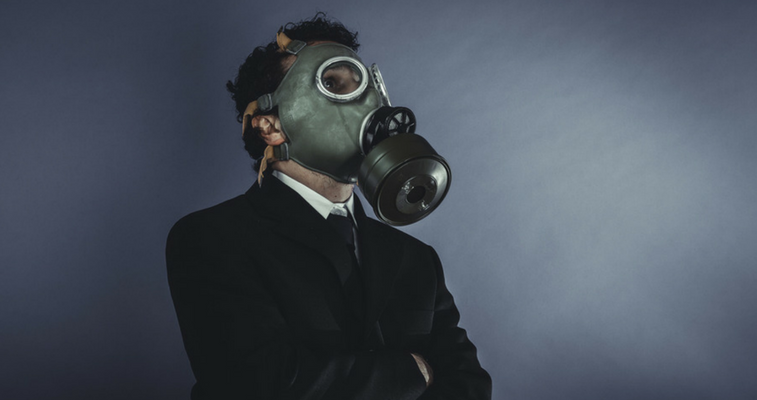My teenage daughter recently discovered the song “Toxic” by Britney Spears. While I’ve got to admit it’s tough not to sing along (even if I’ve now heard it for the 200th time in the last week), it started to get me thinking about the word “toxic” in general. We know the concept to be potentially horrific in relationships, but it’s arguably just as damaging in a work setting.
In an era where so many companies are working hard to create and scale healthy cultures, here are five signs to detect if your workplace is causing you to “slip under.”
LACK OF TRANSPARENCY
You might understand what your individual role is, but there isn’t clarity about what your team is trying to accomplish, or worse - you don’t have a grasp of the company’s goals. It’s one thing for you not to understand; but if you probe for clarity and it’s not provided, you’re set up to fail.
Key Indicator: If there is no or limited communication and transparency about objectives and goals throughout your company, it’s almost impossible for trust to exist, and for strong relationships to be built.
NEGATIVITY FROM PEERS
The last time we searched for additional office space, I did tours of a variety of companies. I was struck by the environments I walked into. Almost immediately, you could get a vibe from how colleagues engaged in the office. Were people chatting with each other? Did they look up and smile when we walked by? Or were they sitting side by side, wired into headphones and you could hear a pin drop? Worse, when I asked one person I knew who worked in one of these companies for insight into her environment, she offered that it might appear quiet... but that people spent much of their day on Slack and chat sites talking smack about the company and its management. Yikes!
Key Indicator: Whether it’s online or in person, when team members gather to commiserate together, it’s creating a really negative dynamic. It’s not so much that they are doing it; it’s concerning why they are doing it in the first place.
LACK OF CONSISTENCY & FAIRNESS
Almost nothing is as frustrating as watching one colleague get promoted while another gets ignored for seemingly the exact same results. When there is a lack of understanding and even consistency in what skills and behaviors are rewards for career progressions, a sense of politics, resentment, and lack of trust ensues. In growing companies, it’s completely normal not to have formal processes or roadmaps sketched out yet; but good leaders will navigate this by rewarding actions that align to what the organization outlines as being important.
Key Indicator: if your company has core values, and there isn’t an active effort to “practice what you preach,” toxicity might be brewing.
DO AS I SAY...
Everyone who works wants to feel like their opinions and ideas are valued. When you see managers acting with a “my way” attitude, or colleagues out for themselves rather than building on the strength of the team, consider it a red flag. Obviously business can’t run by committee, and managers need to make tough and final decisions sometimes.
Key Indicator: If you find your manager and other leaders driving every decision from the top down, with little input or ideas from the team, you’re likely to become creatively and innovatively stunted. And worse, morale and productivity will plummet over time.
GHOST TOWN
One of the most tell-tale signs a company is toxic? People find reasons not to be there. Whether people are calling in sick, starting to roll in later and leave earlier, etc, When people start finding ways to avoid the workplace - or worse, people are actually getting sick from fatigue, stress, etc. - there is a strong likelihood your corporate culture is a negative contributing factor.
Key Indicator: A consistent pattern, within or across teams, of employees taking unexpected time off, cutting out early, or all of a sudden rolling in ‘just in time’.
Building a business is a stressful, incredibly hard thing to do. Remember, however, your people are not “human resources.” They are the lifeblood of your company. Engage them, inspire them, and treat them as if your company’s health depends on it. Toxic environments can tank even the most innovative of ideas.

